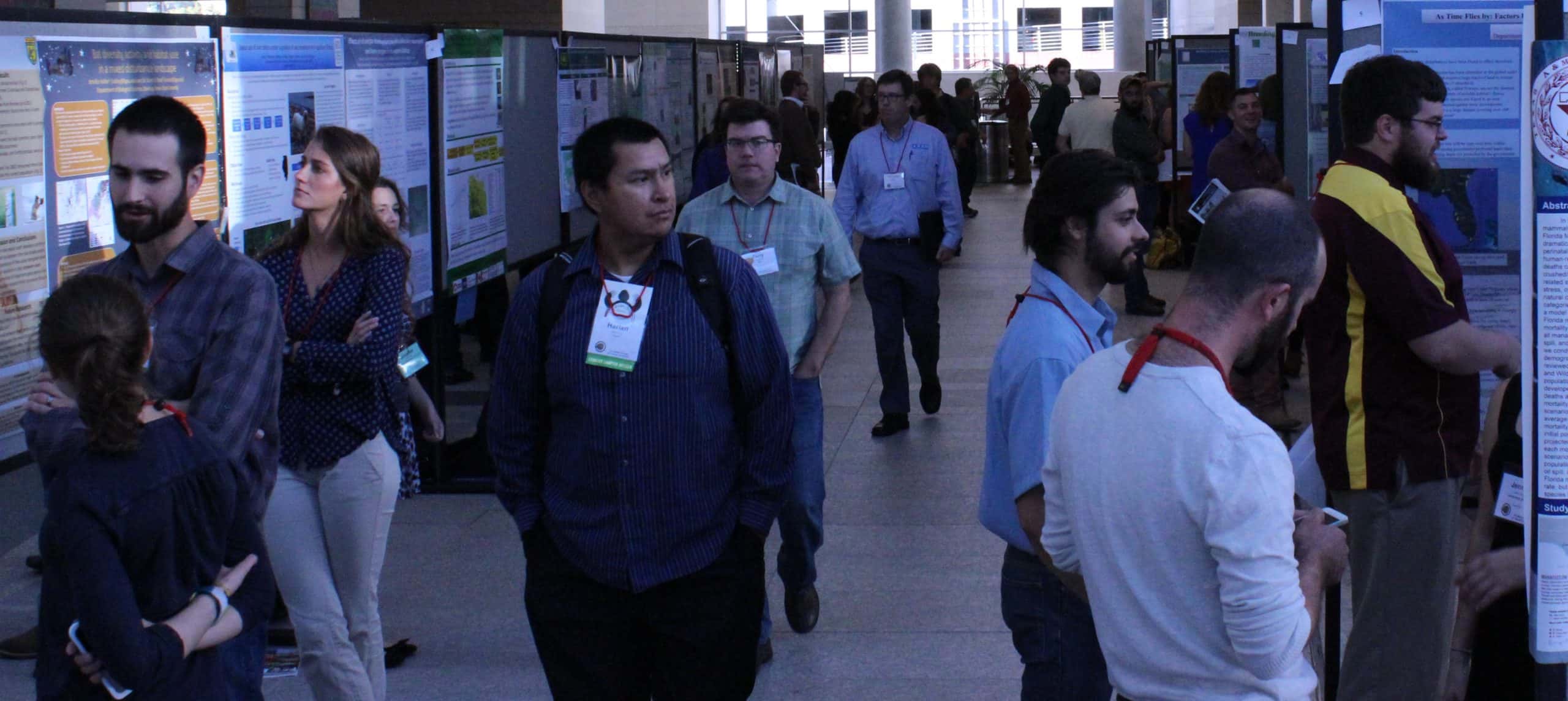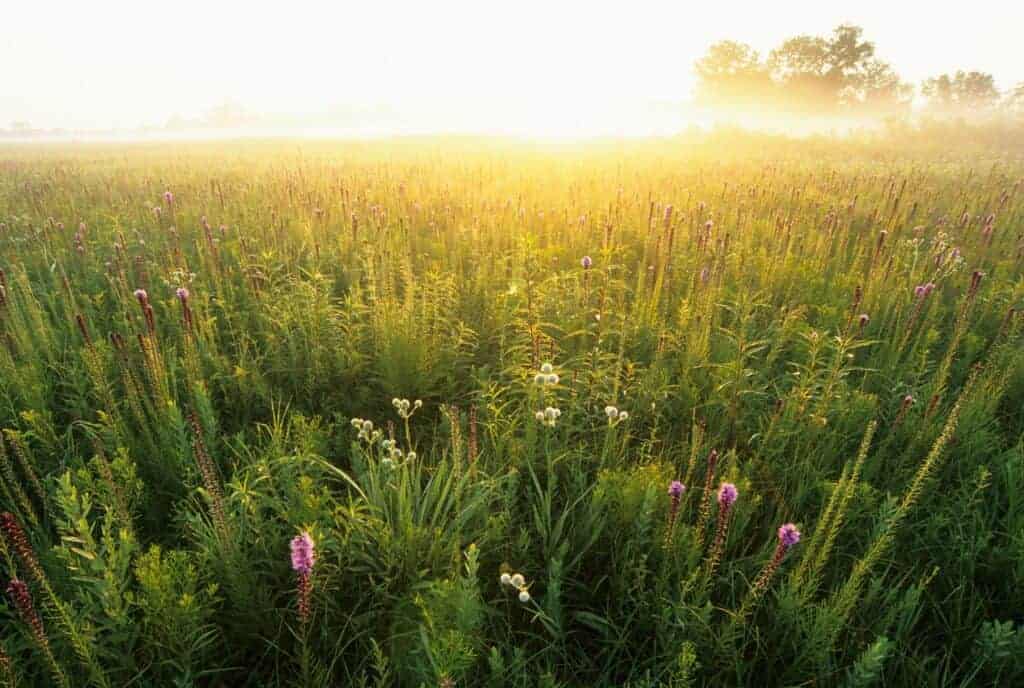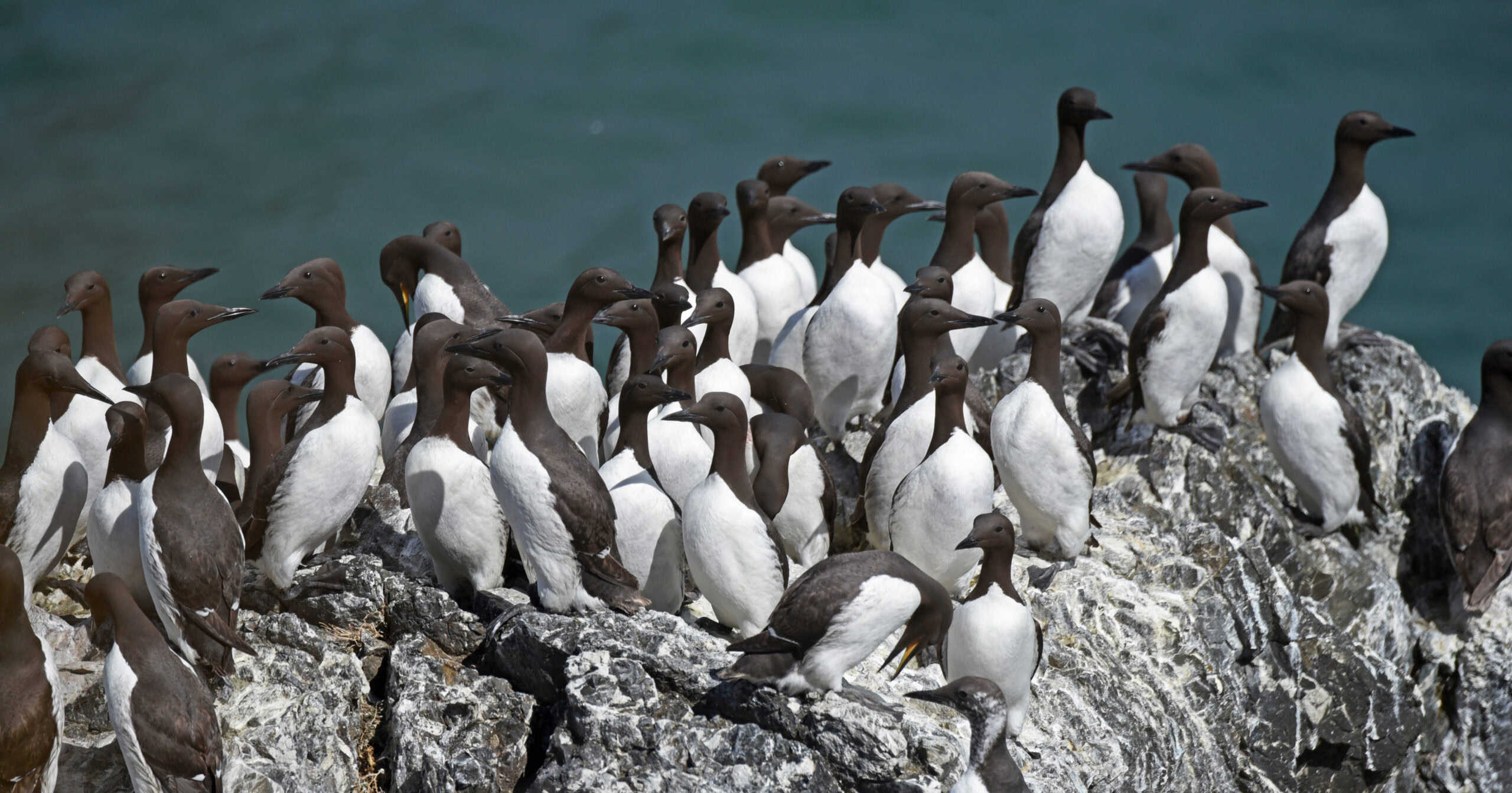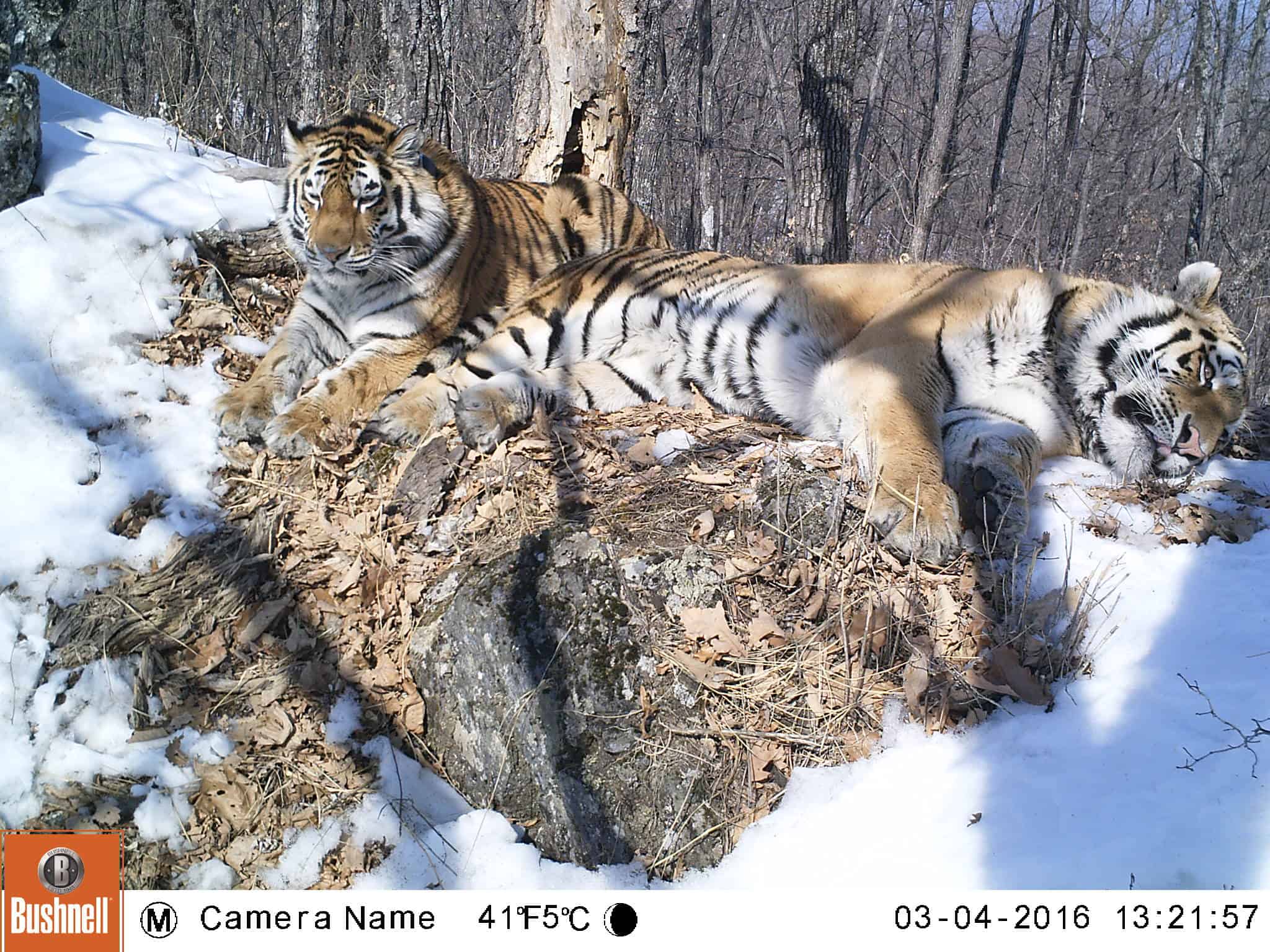Share this article
TWS2021: Student posters highlight a wealth of research
Uncovering wild carnivore conflicts in the Himalayan region and analyzing a new hound bear-hunt in Georgia are just a two topics that will be covered and displayed virtually on posters at The Wildlife Society’s virtual 2021 Annual Conference next week.
Attendees will be able to log in, check out, and comment on student posters at any point during the conference. There will be more than 170 posters featured on the site, some with video introductions to the research and work students are conducting across the continent and beyond.
Topics include everything from using remote sensing to quantify habitat for grassland birds, to the impact of rehabilitation on eastern cottontails (Sylvilagus floridanus) in southern Ontario. TWS student members are examining the coastal ecology of wolves (Canis lupus) in Alaska’s Katmai National Park and examining the habitat preferences of invasive nilgai antelopes (Boselaphus tragocamelus) in Texas. Along the coast of North Carolina, students helped to test the efficacy of different methods to protect loggerhead sea turtle (Caretta caretta) eggs from coyotes (Canis latrans). In the Leech Lake Band of Ojibwe Reservation, students are tracking the abundance of snowshoe hare (Lepus americanus) predators.
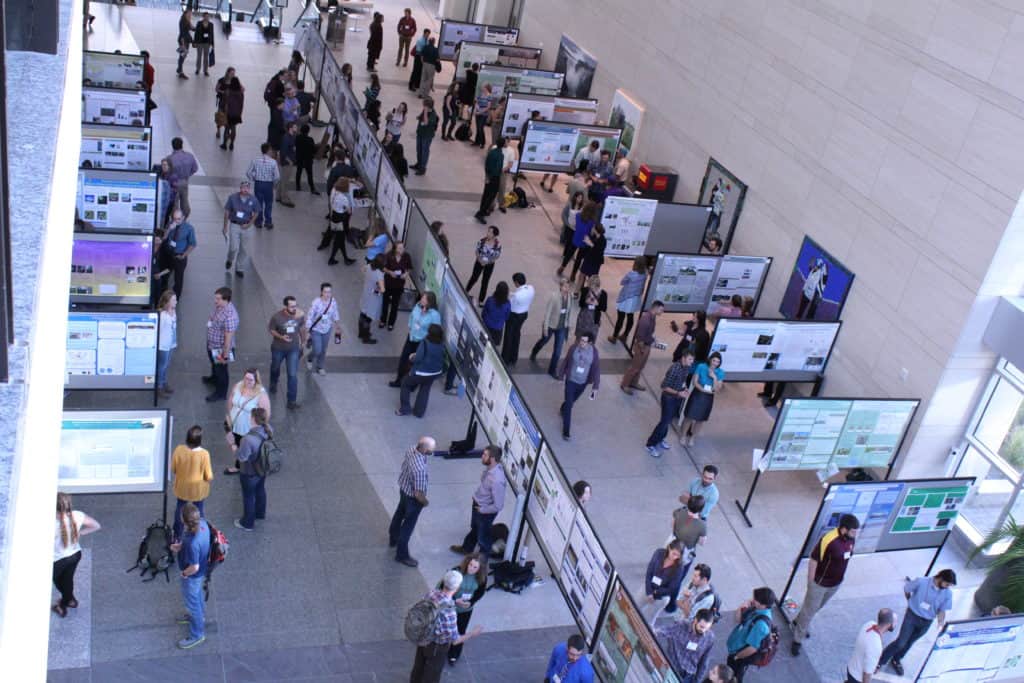
More than 170 posters will be features at The Wildlife Society’s virtual 2021 Annual Conference. Credit: TWS
A number of posters will also focus on wildlife disease, from analyzing the knowledge and behavior of amphibian pet trade stakeholders around the spread of the salamander chytrid fungus Batrachochytrium salamandrivorans (Bsal), to examining the role that invasive giant African snails (Lissachatina fulica) play in the spread of Toxoplasma gondii parasites among native species in Hawaii.
These topics are just a handful of ones that will be covered on posters featured at this year’s virtual conference. You can view them online, where they are divided up by larger topics. Make sure to stop by and leave comments for the next generation of wildlife managers and conservationists.
Header Image: Attendees check out student posters at a previous TWS conference in Raleigh, North Carolina. Credit: TWS



